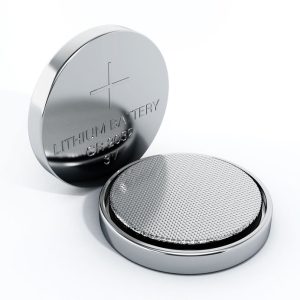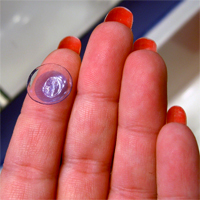Defective Medical Devices
FDA Proposes Changes to 510(K) Medical Device Approval Process

The Attune Knee System was approved through the FDA’s 510(K) process. Breakstone, White & Gluck is currently representing patients who have suffered Attune knee replacement failures. Free Consultation: 800-379-1244.
In 2019, the public can expect to learn more about the Food and Drug Administration (FDA)’s plans for improving the 510(K) approval process for medical devices. Instead of improving the quality of life for patients, too many medical devices are causing injuries and even death. Many of these medical devices were been approved through 510(K).
Too often, we hear about medical device injuries in the news. At Breakstone, White & Gluck, our attorneys represent patients injured by defective medical devices and other unsafe products in Massachusetts and Rhode Island, from Boston to Worcester to Providence. Our attorneys know each news story represents many more patients who have been injured.
But just how many? More than 1.7 million people have suffered injuries from medical device failures over the past decade, according to a 2018 Associated Press report. Nearly 83,000 people died. These are giant and unbelievable numbers, especially when you consider that medical devices undergo a federal approval process which should protect patients.
How the FDA 510(K) Process Works
Since 1976, manufacturers have been able to short-cut the FDA approval process. If a manufacturer can demonstrate their medical device is “substantially equivalent” to an approved medical device, they can apply through the 510(K) approval process. The manufacturer has to submit paperwork, explaining the similarities between medical devices, but they are not required to conduct additional clinical testing – even for devices which are surgically implanted such as knee and hip replacements.
FDA Proposal Calls for 10-Year Restriction
While the FDA has long been committed to the 510(K) approval process, many have argued the process needs to be more focused on patient safety. After many years of complaints, the FDA is now proposing a change to only allow manufacturers to use the 510(K) approval process when they base their applications on medical devices approved in the past 10 years.
The FDA said this change will modernize the process and ensure products and technologies continue to improve.
Here is a point that supports change. While there are 4,000 medical devices in the agency’s database, just six types have caused 25 percent of all injuries between 2008 and 2017. These include defective hip replacements, including the DePuy metal-on-metal and other hip implants, accounting for more than 103,000 injury reports. The other medical devices: spinal stimulators, surgical mesh, defibrillators, implanted insulin pumps and insulin pumps with sensors. These figures also come from the Associated Press.
Over the next few months, the FDA is taking public comment on other questions, such as should there be a public list of devices or manufacturers who make technologies that rely on devices approved more than 10 years ago? Or what would be an appropriate time period? Read more: FDA’s questions for the public.
Common Medical Device Defects and Injuries
Breakstone, White & Gluck specializes in representing those injured by medical device failures in Boston, Worcester and across Massachusetts and Rhode Island. If you have been injured, our attorneys can advise you of your legal rights for seeking compensation. Our goal is to help clients obtain prompt medical treatment and then, full compensation for financial losses, such as lost wages. Patients may also be entitled to damages for pain and suffering.
Our lawyers are experienced in handling medical device claims involving:
Knee implants. One knee replacement with a high rate of failure is the Attune Knee System, which is stabilized by a cement fixture. Patients can suffer physical pain when the cement loosens.
Hip implants. DePuy issued a recall for its ASR XL Acetabular System metal-on-metal hip implants in 2010. But many other implants followed, including the Stryker Rejuvate Modular and ABG II Modular-Neck Hip Stems, Zimmer and Smith & Nephew. Read more about what to do if you have a defective hip implant.
Surgical mesh. Patients have suffered complications after being treated with surgical mesh implants during hernia repair procedures. There have been so many injuries that the FDA has issued an advisory warning patients about the severe pain and long-term complications that can result. One type of surgical mesh which has caused injuries is the Ethicon Physiomesh® Flexible Composite hernia mesh.
Boston Medical Device Injury Lawyers – Free Legal Consultation: 800-379-1244
Learn your legal rights if you have been injured as a result of a medical device failure. For a free legal consultation, contact Breakstone, White & Gluck at 800-379-1244 or 617-723-7676 or use our contact form.
Protect Your Children from Lithium Button Batteries

Beware of Lithium button batteries this holiday season. These are a serious danger to young children, who can swallow them and suffer serious internal injuries.
New parents quickly learn the secret to surviving the holiday season: stock up on batteries. While all batteries should be handled with care, we want to share a few safety tips for handling lithium button batteries.
Small, just the size of a button, these batteries are easy to overlook when you child-proof your home. But button batteries are a giant danger. A child can find one and put in their mouth. Without proper medical care, within hours, a child can suffer severe burns to their esophagus.
In 2010, researchers at Children’s Hospital of Philadelphia tracked more than 3,400 cases of children who swallowed button batteries. The hospital reports 15 children have died and another 80 children have suffered permanent injuries after ingesting button batteries.
Our tips to protect your children:
- Read product labels before you purchase. You may not realize some toys or products have lithium batteries because you do not have to install them. Likewise, products you may guess have lithium batteries may not. It is essential to read and ask questions.
- Know where lithium button batteries are in your home. You can find them in certain toys and baby monitors, as well as remote controls, garage door openers, car keys and bathroom scales. You may also wear a watch powered by a lithium battery.
- Remove products containing lithium batteries from your home. If you really need these products, at least secure them out of your child’s reach.
- Be suspicious of holiday gifts and trinkets. Holiday cards, electric candles and interactive gifts, such as musical stuffed animals, may have lithium batteries. Stop these products before they come into your home. As for holiday cards, enjoy them and discard them the same day. If you keep them, remove the battery.
- Research your holiday gifts. Go online and search for product recalls involving any toy you wish to purchase. You can visit the CPSC website. Search for both the product you are interested in buying and batteries.
- Warn your family and friends. With Thanksgiving just a few weeks away, now is an ideal time to share safety information with your loved ones. Urge family members, friends, grandparents and caregivers to carefully select holiday gifts, make use of toy recall alerts and move products with button batteries out of your child’s reach.
What to do if a child swallows a lithium button battery
If your child ever swallows a button battery, go to the hospital immediately. The sooner a child receives medical attention, the better. A child can suffer a serious internal injury within hours of swallowing a button battery so every second counts.
We hope your child is never injured. But it is critical to understand the symptoms when children swallow button batteries. Parents may not see a child swallow a button battery or may not even know a button battery was in their child’s reach.
These are common symptoms
- Decreased eating or drinking
- Difficulty swallowing
- Vomiting
- Vomiting blood
- Chest pain or discomfort
- Abdominal pain, blood in saliva or stool
- Drooling
- Crying
If you suspect your child swallowed a button battery, the Children’s Hospital of Philadelphia advises parents to seek immediate medical treatment and to refrain from giving the child medications, food or anything to drink. Never attempt the Heimlich maneuver either. This can worsen the injury.
About Breakstone, White & Gluck and Our Commitment to Safety
This holiday season, Breakstone, White & Gluck is committed to sharing tips on toy safety. Every toy, every product you buy should be safe to use, but this is not always the case. Because of this, our Boston product liability lawyers want to share tips from our experience to help parents and grandparents make safe buying decisions.
Breakstone, White & Gluck is a top-rated Boston personal injury law firm, with lawyers who have been consistently recognized for excellence over the past 26 years, including by Top 100 New England Super Lawyers, Best Lawyers in America and Martindale-Hubbell. Our attorneys have also been recognized for starting our Project KidSafe campaign and working to help prevent injuries and deaths by providing safety education to families. To date, we have donated over 25,000 bicycle helmets to children, with a goal of preventing head injuries.
Learn more about Breakstone, White & Gluck: www.bwglaw.com. If you have been injured, our attorneys offer a free legal consultation and can help explain your rights for seeking potential compensation. Call 800-379-1244 or 617-723-7676 or use our contact form.
Additional Resources for Parents
We encourage parents to watch these videos.
Medical Device Recall: Stryker Rejuvenate and ABG II Hip Implants
The year 2012 saw another major hip replacement recall which may require an intensive treatment plan for patients.
In July 2012, Stryker recalled two hip replacements, the Rejuvenate and ABG II modular-neck stems. Stryker initiated the voluntary recall due to the potential risks for fretting and corrosion at the junction of the metal stem and metal neck.
Several months later, product liability lawsuits have been filed in a few states and patients are still learning what the recall may mean for them. The recall came two years after DePuy Orthopedics recalled its all-metal hip implant, the ASR XL Acetabular System, in 2010. A study showed the DePuy hip implant failed in one of eight patients and required they undergo a second surgery within five years – compared to the industry standard of 15.
The DePuy hip implant caused friction between the metallic ball and socket components and injuries such as bone fractures, trouble walking and metallosis, a painful condition which occurs when metallic particles appear in a patient’s blood stream.
With the Stryker recall, the company states the incidence of complications is extremely low and that patients who experience pain and swelling should speak with their surgeon. If a patient does require a second surgery, it may be more complex than in the DePuy recall. The neck stem of Stryker’s hip implant was implanted tightly into the femur bone to stay permanently. There may be potential for complications such as bone fractures.
If you have a Stryker hip implant, you should have been contacted by your surgeon about the recall. If not, you should contact them now as well as an experienced medical device lawyer, who can represent your interests.
Contact an Experienced Hip Implant Recall Lawyer The Boston product liability lawyers at Breakstone, White & Gluck have over 100 years combined experience handling cases involving defective medical devices and pharmaceuticals. If you have been injured, it is important to learn your rights. For a free legal consultation, contact us today toll-free at 800-379-1244 or 617-723-7676 or use our contact form.
Related: Stryker Initiates Voluntary Product Recall of Modular-Neck Stems, Food and Drug Administration.
What to Know About Medical Device Recalls
Medical devices are supposed to improve the quality of a patient’s health. When they are surgically implanted, patients expect an extensive recovery and regular medical check-ups. But no patient should expect the medical device to cause new injuries or to be recalled.
Medical devices are supposed to undergo a rigorous approval process with the Food and Drug Administration (FDA) before going on the market, but some screening fails to identify defective devices. Here are some things every patient using a medical device should be aware of regarding product recalls.
Who is Responsible for a Medical Device Recall? The FDA can legally require a company to recall a medical device. In many cases, however, companies recall their own medical devices.
What Does a Recall Mean? A medical device is recalled when it no longer meets FDA requirements. A recall means a medical device is defective, poses a risk to a person’s health, or both.
A recall may mean the device needs to be removed and replaced. It may also mean the device needs repairs or monitoring.
There are three classes of medical device recalls. A Class I Recall is the most serious and indicates there is a reasonable chance the recalled medical device could cause serious illness or even death.
A Class II Recall means a product may cause temporary health problems. A Class III Recall is the least serious type and occurs when the FDA instructs a manufacturer to make a correction that violates FDA regulations.
What is the 510(k) Approval Process? The FDA approves 90 percent of medical devices under the 510(k) process, including many devices which have been recalled in recent years. These include hip implants, external heart defibrillators and transvaginal mesh.
The process – also called Premarket Notification – was designed to bring new treatments to patients faster. Manufacturers must notify the FDA of their intent to market a medical device at least 90 days in advance. Medical device manufacturers are required to submit premarket notification if they plan to introduce a device for the first time or reintroduce a device that will be significantly changed or modified to the extent that its safety could be affected.
How to Learn About a Medical Device Recall. Your doctor or the medical device manufacturer should notify you. You can visit the manufacturer’s website to check for recall notices. The FDA also maintains an online medical recall database. Finally, large medical device recalls may receive media coverage, which may answer some of your questions.
What to Do When a Medical Device Recall Occurs. You can expect to work with the manufacturer as well as your doctor or surgeon.
You should follow your doctor’s advice, except if he or she asks you to sign a form authorizing the release of your medical records before treatment is undertaken. This would allow your physician to release your medical records directly to the manufacturer. It is not in your best interest to sign the release before speaking to an attorney.
Contact a Boston Medical Device Recall Lawyer. If you have a medical device which has caused you injury – or which you suspect has caused you pain and injury – you should contact an experienced Boston product liability lawyer. You may be entitled to file a lawsuit to recover damages for pain and suffering, medical costs and other expenses. You may also be entitled to damages if a loved one has suffered illness or been killed as a result of a defective medical device.
Medical device recalls are debilitating for patients who have often already suffered physical pain. Recall lawsuits are complex. If you have been injured by a defective medical device, Breakstone, White & Gluck has the experience, expertise and resources to obtain you results in your claim.
For a free legal consultation, contact us today toll-free at 800-379-1244 or 617-723-7676 or use our contact form.
DePuy Hip Implant Cases Settled for $600,000
Johnson & Johnson has agreed to pay about $600,000 to resolve three product liability cases involving its DePuy hip implants, which were recalled in 2010 after hundreds of patient complaints and a study emerged revealing a substantial device failure rate.
The New Jersey-based company settled the cases of three women who had filed claims in a Las Vegas court. All three women had required a second hip revision surgery to treat and correct their pain. Each will receive about $200,000. The cases had been scheduled for trial Dec. 3.
The next three lawsuits involving defective DePuy hip implants are set for January in a Maryland state court.
In August 2010, Johnson & Johnson’s DePuy unit recalled 93,000 of its ASR hip implants globally and 37,000 in the United States. The recall was announced alongside results of a study from a UK joint replacement registry, which showed 12 percent of patients required a second revision surgery within five years. The Food and Drug Administration (FDA) also reported it had received about 400 complaints from patients in the two years prior.
Since the DePuy hip recall, more than 8,000 patients across the country have filed lawsuits against the medical device maker, alleging the ASR hips are defective. About 6,000 of these have filed in federal court.
Patients claim the DePuy metal-on-metal hip implants are defective, saying they caused friction between the metallic ball and socket components. The recalled DePuy hip implant can wear down and produce metallic particles in patients’ bloodstreams, along with pain, joint dislocations, infections and bone fractures.
Johnson & Johnson said it has spent about $800 million on the hip implant recall.
Related:
- J&J said to pay $600,000 to settle first suits over hips, Bloomberg Business Week.
- DePuy hip implant recall leads insurers to seek recovery, Massachusetts Injury Lawyer Blog.
Recalled Heart Device and Similar Model Under FDA Watch
 The Food and Drug Administration (FDA) has ordered St. Jude’s Medical to expand studies into Durata defibrillator leads, saying the heart devices are sufficiently similar to Riata leads, which were recalled last year. The agency is also seeking new data on Riata.
The Food and Drug Administration (FDA) has ordered St. Jude’s Medical to expand studies into Durata defibrillator leads, saying the heart devices are sufficiently similar to Riata leads, which were recalled last year. The agency is also seeking new data on Riata.
Defibrillators are implanted in patients with abnormal heart rhythms to regulate the heart beat. The medical devices are connected to the heart with leads. Riata was recalled because in some cases, wires were breaking through the insulation, which can potentially lead to a life-threatening abnormal heart rhythm.
A recent St. Jude study of 700 Riata patients found the defective wire broke through the insulation in about 19 percent of cases. A study led by a Minneapolis Heart Institute cardiologist has linked Riata leads to 20 deaths.
St. Jude, of St. Paul, Minnesota, pulled the defective Riata leads off the market in December 2010 and the FDA issued a medical device recall in late 2011. A 2011 count found 79,000 patients were still implanted with the Riata leads.
Responding to the FDA order, St. Jude said it is already collecting data on both Riata and Durata. The company stated the medical devices are different in design and a new coating meant to protect the insulation.
The FDA’s orders include routine X-rays for patients enrolled in post-market Durata studies to identify any insulation problems. St. Jude must also perform X-rays in a three-year post-market study on the defective Riata leads. The goal is to detect extruded leads which are floating loose in the heart.
Surgery to remove extruded leads can be dangerous. St. Jude says many patients live with the loose wires and continue to function normally. The FDA has advised doctors to closely monitor patients.
Related:
- FDA Orders Review of Heart Devices, The Wall Street Journal.
- Riata patients should get X-rays, FDA says, Star Tribune.
- Doctors grapple with FDA advice for troubled heart wire, Fox News.com.
Surgical Mesh Maker to Phase Out Defective Medical Device
Johnson & Johnson, one of the largest manufacturers of surgical mesh, has announced plans to stop selling the medical implants, as it faces hundreds of lawsuits from injured women and increasing oversight from the Food and Drug Administration (FDA).
Surgical mesh is used to strengthen the pelvic wall in cases of pelvic organ prolapse (POP) and stress urinary incontinence (SUI). Last year, approximately 75,000 women had a transvaginal procedure using surgical mesh.
Johnson & Johnson disclosed it will phase out surgical mesh in a recent letter sent to New Jersey and West Virginia judges overseeing patient lawsuits against them. The company said it plans to discontinue four mesh products over the next three to nine months.
On July 13, 2011, the FDA issued a public safety advisory stating traditional POP repair with mesh has no advantage over traditional non-mesh repair. Between 2005 and 2010, more than 3,800 women had reported complications and injuries following transvaginal mesh surgery, according to the FDA.
Many more women have stepped forward since the FDA advisory, many of whom have suffered painful, long-term injuries. Some injuries cannot be corrected through surgery. Hundreds of women have filed lawsuits against the manufacturers, which include Johnson & Johnson and Boston Scientific.
In September 2011, an FDA panel heard arguments from advocacy groups, surgeons and consumer organizations. Many wanted to see a surgical mesh recall, others wanted the FDA to implement more oversight. Some sought a reclassification while others said the surgical mesh problem made another case for overhauling the 510(k) system, which allows manufacturers to sell new products without a new review so long as they are “substantially equivalent” to an already legally marketed device.
The FDA did not require a surgical mesh recall. But in January 2012, it ordered Johnson & Johnson and the other companies to conduct studies to track surgical mesh complication rates over time. Johnson & Johnson has been collecting data to comply, but said it expects the FDA will waive the requirement.
Complaints from transvaginal surgical included mesh erosion with in the body, bleeding, pain during sexual intercourse, organ perforation, vaginal scarring, muscular and emotional problems. While corrective surgery is an option, it is not always successful.
Some surgeons are now recommending women consider whether they really need POP surgery and if they do, request a procedure without mesh, according to a Consumer Reports article. Click here for a recent article.
Related:
- FDA Safety Communication: UPDATE on Serious Complications Associated with Transvaginal Placement of Surgical Mesh for Pelvic Organ Prolapse, July 13, 2011.
- What to Know If You Have Been Injured By Surgical Mesh or Transvaginal Mesh.
- Urogynecologic Surgical Mesh Implants, Food and Drug Administration
DePuy Hip Implant Recall Leads Insurers to Seek Recovery
Medical insurance companies are alerting patients who have defective all-metal hip implants that they will seek to recover expenses from any settlement money which patients receive. Medicare is also expected to try and recover its costs.
Thousands of patients have been affected by recent recalls of all-metal hip implants and are expected to seek compensation from manufacturers. Although insurance companies, by statute or contract, often have the right to recover some of their costs, it is unusual for companies to be so assertive for medical device failures. The aggressive actions being taken by the insurers reflect their awareness of just how expensive these defective products are becoming.
In August 2010, DePuy recalled the ASR XL Acetabular System. The hip implant is defective because it causes friction between the metallic ball and socket components, which are implanted to replace the femur and acetabulum.
The recalled DePuy hip implants can wear down and produce a substantial amount of metallic particles in patients’ bloodstreams. Patients reported signs of metallosis, including pain, swelling, problems walking and rashes. Other serious problems may include bone fractures, joint inflammation, hip dislocation and damage to the tissue, hip implant loosening, nerves and muscles near the implant.
DePuy recalled the defective hip implants after the Food and Drug Administration (FDA) received about 400 complaints in two years from patients. That number has grown significantly following the recall. In just the first six months of 2011, the FDA received more than 5,000 reports about problems with all-metal hip implants, according to an analysis by The New York Times. DePuy hip implants accounted for 75 percent of the complaints.
It is still unclear how many patients have been affected by defective metal hip implants. The New York Times reports one estimate that 500,000 patients have received an all-metal replacement hip.
The newspaper reports another estimate that 250,000 hip replacements are performed in the United States each year. Until recently all-metal hip implants accounted for nearly one-third of these procedures.
As of October 2011, 3,500 patients filed lawsuits against DePuy in connection with last year’s recall. DePuy also faces over 560 lawsuits in connection with the Pinnacle, another defective all-metal hip implant.
More lawsuits are expected against DePuy and other manufacturers as patients start experiencing pain and requiring corrective surgery. This procedure can be painful, require substantial post-operation bed rest and treatment and cost hundreds of thousands of dollars.
Click here to read more about all-metal hip implants in the New York Times.
Read More
Medical Device Recall for CooperVision Contact Lenses
 Consumers are advised to stop using a second type of CooperVision’s Avaira contact lenses due to a defect that may result in blurry vision and other eye injuries.
Consumers are advised to stop using a second type of CooperVision’s Avaira contact lenses due to a defect that may result in blurry vision and other eye injuries.
On Nov. 16, an unknown quantity of CooperVision Avaira (enfilcon A) Sphere contact lenses were recalled due to the unintended presence of a silicone oil residue.
CooperVision, a Fairport, NY-company, recalled the lenses in cooperation with the Food and Drug Administration (FDA), which states that the silicone oil residue can result in a wide range of symptoms, including eye discomfort, hazy and blurry vision and eye injuries requiring medical treatment. The FDA regulates contact lenses as a medical device.
The recalled lenses were manufactured from Feb. 1, 2011 to Aug. 24, 2011 and distributed from March 2, 2011 to Nov. 15, 2011.
The contact lenses were used to correct myopia and hyperopia and non-aphakic individuals with non-diseased eyes. The lenses may be worn by individuals who have astigmatism of 2.00 diopters or less that do not interfere with visual acuity.
Lens wearers have been instructed to stop using the lenses immediately and contact their eye care professional. They can visit the CooperVision recall website and enter the defective medical device package numbers to determine if their lenses have been recalled.
The medical device recall expanded another in August 2011 for limited lots of Avaira Toric contact lenses. CooperVision said the product defect on that line has been corrected through its quality system process.
Contact lens injuries are prevalent, due to product defect or improper use. They are most common among children and adolescents. In a study published in the July 2010 Pediatrics, FDA researchers reported 23 percent of total medical device injuries in 2004 and 2005 in the U.S. involved children and contact lenses. Children ages 11 and over were the most affected.
Common personal injuries include corneal contusions and abrasions, hemorrhage and conjunctivitis.
Click to read the FDA notice about the CooperVision recall.
Read More
FDA Considers Next Step for Transvaginal Mesh, Medical Device Approvals
A Food and Drug Administration (FDA) advisory panel has recommended that some transvaginal mesh products be reclassified as the process for approving mesh and other medical devices comes under scrutiny.
On July 13, the FDA updated a 2008 public health notification, reporting that complications from transvaginal mesh are not rare and that it is not clear that transvaginal mesh surgery is more effective than non-mesh repair of pelvic organ prolapse (POP). Having received over 3,800 reports of complications, the FDA urged surgeons to consider other options before performing transvaginal mesh surgery.
Since then, more than 600 women have filed lawsuits over complications from transvaginal mesh, which is surgically implanted to treat both POP and stress urinary incontinence (SUI). POP occurs when a women’s pelvic muscles and organs are weakened and stretched, often after child birth or hysterectomies.
Women reported painful complications such as internal mesh erosion, pain during intercourse, infection, bleeding, organ perforation and urinary problems. Corrective surgery is often required and is not always successful. In one report by Bloomberg News, a woman reported she had undergone 17 procedures to reverse damage from transvaginal mesh, including five surgeries, and is still suffering from the condition.
The FDA approved the first transvaginal mesh product, ProtoGen by Boston Scientific, in 1996. Two years later, Johnson & Johnson won approval for a similar device called Gynecare VT, but was not required to conduct human testing on it. Using the FDA’s 510(k) process for medical devices, Johnson & Johnson was allowed to bypass testing by claiming the device was “substantially equivalent” to the Boston Scientific mesh product.
The FDA approves 90 percent of medical devices under the 510(k) process, including defective hip implants and external heart defibrillators that have been subject to recalls in recent years.
Critics say the 510(k) process is flawed and needs to be overhauled. In the case of Boston Scientific, the Massachusetts manufacturer recalled its surgical mesh product in 1999 as other companies were just starting to bring their product to market. There are a total of nine manufacturers of transvaginal mesh products.
In January, the FDA announced it was considering 25 changes to the 510(k) system. In July, the non-profit U.S. Institute of Medicine issued a warning about it and Congress has pushed the FDA to make changes.
As for transvaginal mesh, the FDA convened an advisory panel to review the safety of the medical device in September. The 17-member panel recommended that some transvaginal mesh be reclassified as high-risk devices and require new studies be conducted to stay on the market. The FDA has yet to make a decision.
Read More



